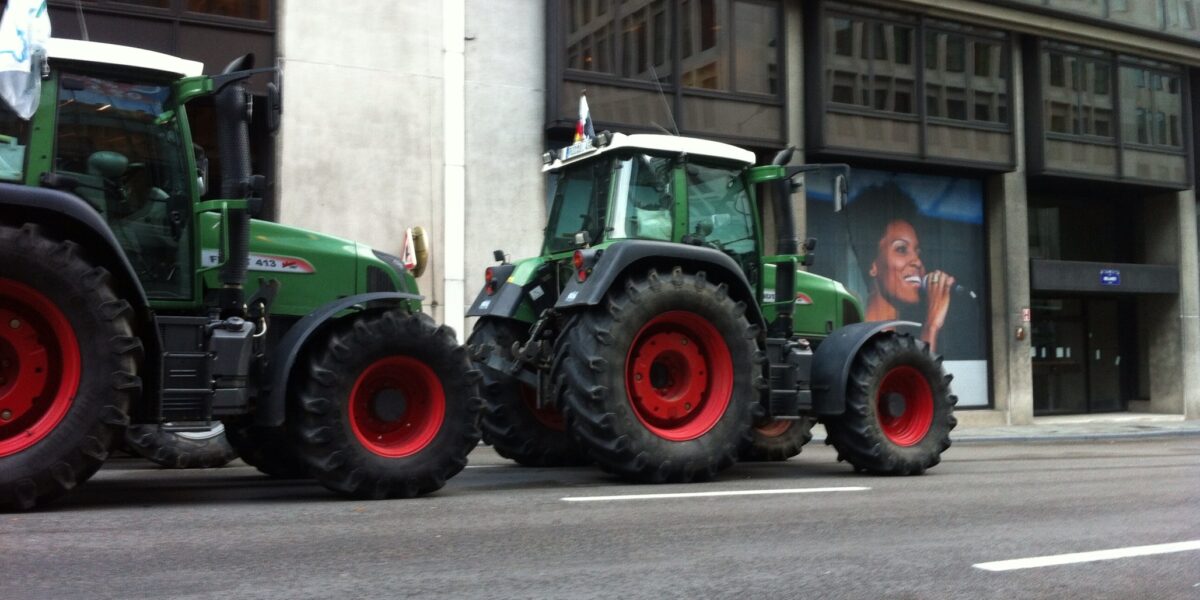It has not been making the mainstream news in Canada, but across Europe farmers are gathering in major cities with their tractors, blocking roads and encircling major cities, protesting a host of national and international issues.
It is complicated, because these protests are not based on a single issue, but rather an entire host of agricultural and trade policies, coupled in some cases with the impact of war, new and pending trade deals, cheaper imported foods, climate change regulations, inflation, and increased costs of production topped by increasingly diminishing returns for farmers.
Across the European Union – from the Netherlands, through Belgium, Germany, France, Spain, Italy and into Poland and Romania, farmers are visibly confronting a food system that they feel has turned on them.
Issues cited by farmers are cheap food imports, in others rising production costs and decreasing margins for the farm. Drought, along with policies that would increase farm concentration and escalate the loss of farm livelihoods, also have been cited.
In many ways it is a perfect storm — and one that has been a long-time in the making. Some of the same issues leading European Union farmers to protest are bubbling to the surface here in Canada.
It is hard to find detailed information on the tensions surfacing in each country, but the general malaise has been described in a recent article by The Guardian:
“Farmers have said they face falling sale prices, rising costs, heavy regulation, powerful and domineering retailers, debt, climate change and cheap foreign imports, all within an EU agricultural system based on the premise that ‘bigger is better’.”
If this sounds familiar — it’s because these same issues are at play here in Canada.
An agricultural system based on producing for the export market, and importing foreign produce — even when it is or can be produced here at home — is leading to a host of escalating problems.
Farmers in Canada have been told for decades that “bigger is better” and that capitalization of their operations is the only way to “feed the world”. And so larger and larger farms have led to massive land concentration and loss of farmers. All the while those who have managed to continue farming are further in debt, and trying to deal with rising costs, interest rates, and crop instability due to climate change.
Across the pond, regulations are now being applied to try to stem carbon emissions by reducing use of nitrogen, encouraging land to lie fallow, along with increases in some taxes related to the use of fossil fuels… and European farmers are increasingly frustrated about concerns that are key to their livelihood, yet still ignored.
The perfect storm is creating the perfect urban rural divide — and it is based on a global agricultural system that has placed the import/export game, and the rising profits of transnational corporations — the co-called middlemen — that profit from handling the production inputs (i.e. seed, fertilizers, machinery) and the delivery systems that transport and retail the products.
The thing is that not everyone agrees on the solutions, or has a necessarily deep analysis of the problems… and so the plight of the farmer and their rural communities is also the perfect wedge issue for conservative and far-right groups to organize and recruit. These elements are also present in the tractor demonstrations in Europe.
We have our own problems with wedge issues here as well, and direct experience about how these can be used to foment anger, frustration, and yes, even violence — while not leading to any solid solutions for rural people and their communities.
All of that is now occurring across Europe, due to layers of government negligence and decades of farm policies geared to profit and pilfer and mine farmer and soil alike… Rather than creating policies that actually serve communities instead of corporations, governments have allowed these issues to fester and now come to a head.
Tell me… why would food producers not be frustrated when Amazon delivers groceries, large food retailers are regularly investigated for price-fixing and are highly concentrated, and the fossil fuel industry continues as if it were business as usual.
I could go on — but I think the picture is quite clear of what is on the horizon for many of us if we do not advocate for progressive policy change for farmers, their communities and our food system.



